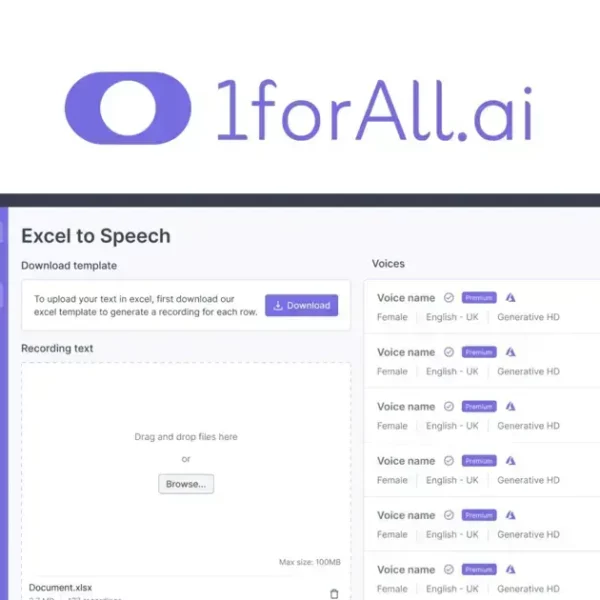The best CRM applications for 2023 include Salesforce, HubSpot CRM, Zoho CRM, Microsoft Dynamics 365, and Pipedrive. These tools enhance customer relationships, improve efficiency, and offer valuable insights, making them essential for businesses looking to optimize sales and customer management.
Best CRM applications are essential for businesses looking to enhance customer relationships and streamline operations. Embracing the right CRM software can drastically change how you manage your interactions and data, providing valuable insights into your customer base. This article dives deep into what CRM applications are, their key features, and the top tools available in 2023.
What Are CRM Applications?
CRM applications are software tools that help businesses manage their relationships with customers. These applications organize and automate communication, sales, and other customer-related activities. By centralizing customer information, CRM systems allow companies to track interactions, sales history, and preferences.
Types of CRM Applications
There are several types of CRM applications, including:
- Operational CRM: Focuses on automating and improving customer-facing processes such as sales, marketing, and service.
- Analytical CRM: Analyzes customer data to enhance decision-making, forecasts, and marketing efforts.
- Collaborative CRM: Enhances communication and collaboration among different business units such as sales and support.
Key Features of CRM Applications
Most CRM applications come equipped with various features to support businesses:
- Contact Management: Stores and organizes customer contact information.
- Sales Automation: Streamlines sales processes and tracks sales performance.
- Reporting and Analytics: Provides insights through data analysis and reporting tools.
- Marketing Automation: Facilitates marketing campaigns and tracks their effectiveness.
Importance of CRM Applications
Using a CRM application can significantly improve customer satisfaction by enabling personalized interactions and timely responses. Efficient management of customer relationships leads to improved retention rates and can drive sales growth for businesses.
Overall, CRM applications are essential for businesses striving to maintain strong relationships with customers while optimizing their sales and marketing efforts.
Top Features of the Best CRM Applications

The best CRM applications come equipped with several features that enhance their effectiveness and usability for businesses. Understanding these features can help you choose the right CRM for your needs.
1. Contact Management
Effective contact management is fundamental in any CRM application. This feature allows you to store and track every customer’s details, including name, email, phone number, and interaction history. You can easily access and update contact information, ensuring your team always has the most current data.
2. Sales Automation
Sales automation streamlines your sales process, making it easier to manage leads and close deals. This feature automates routine tasks like sending follow-up emails and reminders, so your sales team can focus on engaging with customers.
3. Task and Event Tracking
Task and event tracking keeps your team organized by allowing them to set deadlines, reminders, and notes. You can schedule meetings, tasks, or calls directly within the CRM, ensuring nothing falls through the cracks.
4. Reporting and Analytics
Robust reporting and analytics tools provide insights into your sales performance and customer behavior. These features help identify trends, measure campaign effectiveness, and support strategic decision-making through data-driven insights.
5. Integration Capabilities
A good CRM application should easily integrate with other tools and software that your business uses, such as email marketing platforms, accounting software, and social media applications. This integration enhances workflow and ensures all your systems work together seamlessly.
By leveraging these features, businesses can improve their customer relationships, enhance productivity, and drive sales growth with the right CRM application.
How to Choose the Right CRM for Your Business
Choosing the right CRM for your business involves careful consideration of several key factors. Each business has unique needs, and the right CRM can greatly enhance efficiency and customer relationships.
1. Identify Your Business Needs
Start by evaluating what your business requires from a CRM. Do you need basic contact management, or do you require advanced features like sales automation and detailed reporting? Understanding your specific needs will help narrow your choices.
2. Consider User-Friendliness
The CRM you choose should be user-friendly. A complex system can lead to confusion and discourage employee adoption. Look for a CRM with an intuitive interface that your team can easily navigate.
3. Evaluate Integration Options
Ensure that the CRM integrates well with your existing tools, such as email services, marketing platforms, and accounting software. Compatibility is crucial for a smooth workflow and data synchronization between systems.
4. Check for Customization Features
Your business may have unique workflows or processes. A good CRM should allow for customization to fit your specific needs. Look for options that let you customize features, dashboards, and reports.
5. Review Pricing Plans
Different CRM applications offer various pricing structures. Determine your budget and evaluate which options provide the best value for the features you need. Check for any hidden costs related to implementation and ongoing support.
Taking the time to carefully assess these factors will help you select a CRM that aligns with your business goals and enhances your customer relationship management.
Benefits of Using CRM Applications

Using CRM applications provides numerous benefits that can help businesses streamline their processes and enhance their relationships with customers. Understanding these advantages can motivate companies to adopt a CRM solution.
1. Improved Customer Relationships
CRM applications enable businesses to manage customer interactions more effectively. By storing customer data in one place, companies can better understand their clients’ needs and preferences, leading to personalized communication and improved satisfaction.
2. Increased Efficiency
With the automation features of CRM applications, businesses can reduce manual tasks such as data entry and follow-up reminders. This increase in efficiency allows employees to focus on higher-value activities, ultimately boosting productivity.
3. Enhanced Sales Management
CRM systems provide tools to manage the sales pipeline effectively. Businesses can track leads, opportunities, and customer interactions, making it easier to identify potential sales and close deals faster.
4. Better Data Analysis
CRM applications offer robust reporting and analytics features. Businesses can track key performance indicators (KPIs), recognize trends, and make informed decisions based on data insights. This ability to analyze performance helps refine marketing strategies and improve overall business outcomes.
5. Centralized Information
One of the key benefits of CRM applications is the centralization of customer information. All data is stored in a single location, making it accessible to all team members. This central repository ensures that everyone is on the same page and can collaborate more efficiently.
Overall, implementing a CRM application can greatly enhance a business’s ability to foster relationships, streamline operations, and analyze customer data effectively.
Top 5 Best CRM Applications for 2023
Choosing the right CRM application can significantly impact your business’s success. Here are the top 5 best CRM applications for 2023 that stand out in the market:
1. Salesforce
Salesforce is a leading CRM that offers a comprehensive suite of tools for sales, marketing, and customer service. Its cloud-based platform allows businesses to customize their workflows and integrates easily with various third-party applications.
2. HubSpot CRM
HubSpot CRM is a popular choice for small to medium-sized businesses. It offers a free version with essential features, making it accessible for startups. HubSpot features include contact management, sales tracking, and user-friendly reporting tools.
3. Zoho CRM
Zoho CRM is known for its affordability and robust features, including sales automation, lead management, and analytics. Its customizable dashboard allows businesses to tailor the interface to their specific needs, making it a flexible option.
4. Microsoft Dynamics 365
Microsoft Dynamics 365 combines CRM and ERP functionalities, making it ideal for larger organizations. It integrates seamlessly with other Microsoft products, providing a unified platform for sales, customer service, and operations.
5. Pipedrive
Pipedrive is tailored for sales teams looking to streamline their processes. Its visual sales pipeline and intuitive interface make it easy for users to track deals and manage leads effectively.
These CRM applications offer varying features and pricing structures, allowing businesses to choose the best option based on their needs and budget.
Choosing the Right CRM Can Transform Your Business
Using a CRM application can greatly benefit your business by improving customer relationships, enhancing efficiency, and providing valuable insights. The top CRM options in 2023, including Salesforce, HubSpot CRM, Zoho CRM, Microsoft Dynamics 365, and Pipedrive, all offer unique features tailored to meet different business needs.
As you consider adopting a CRM, remember to evaluate what features are most important for your organization. With the right choice, you can simplify processes, automate tasks, and foster stronger connections with your customers.
Embracing the right CRM system can lead to successful growth and sustainability for your business.
FAQ – Frequently Asked Questions about CRM Applications
What is a CRM application?
A CRM application is a software tool that helps businesses manage their relationships with customers, organize data, and automate processes.
How can CRM applications improve customer relationships?
CRM applications centralize customer information, allowing businesses to understand their needs better and engage with them more effectively.
What features should I look for in a CRM application?
Key features to consider include contact management, sales automation, reporting and analytics, task tracking, and integration capabilities.
Are there free CRM options available?
Yes, many CRM applications offer free versions with basic features, such as HubSpot CRM, which is great for small businesses and startups.
How do I choose the right CRM for my business?
Identify your specific business needs, consider user-friendliness and integration options, and evaluate pricing plans to find the best fit.
Can CRM applications be customized?
Yes, many CRM applications allow for customization to fit unique business processes and workflows, enhancing their usability.




